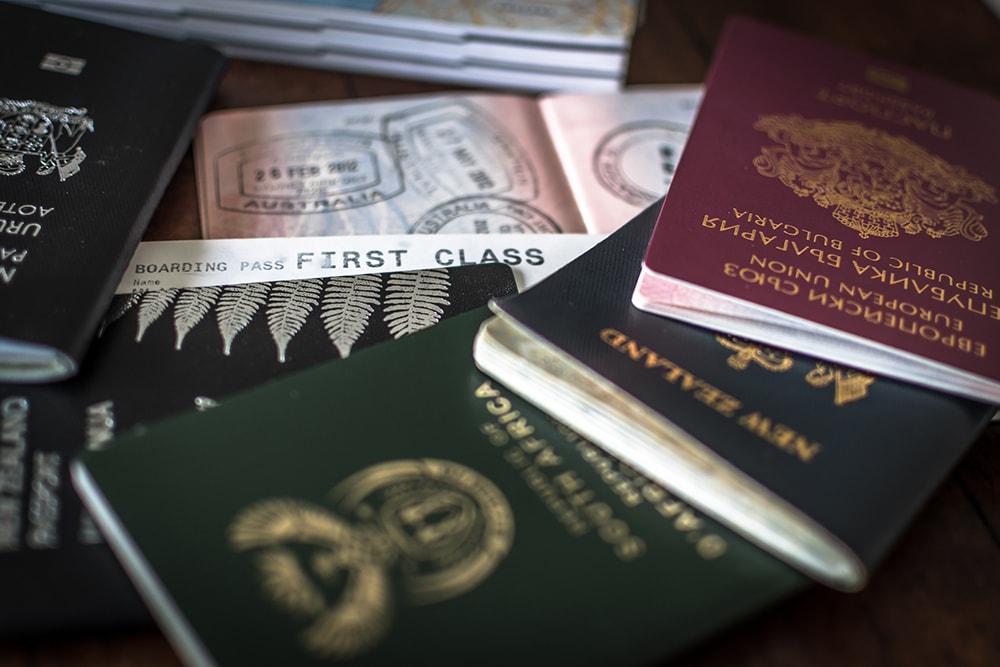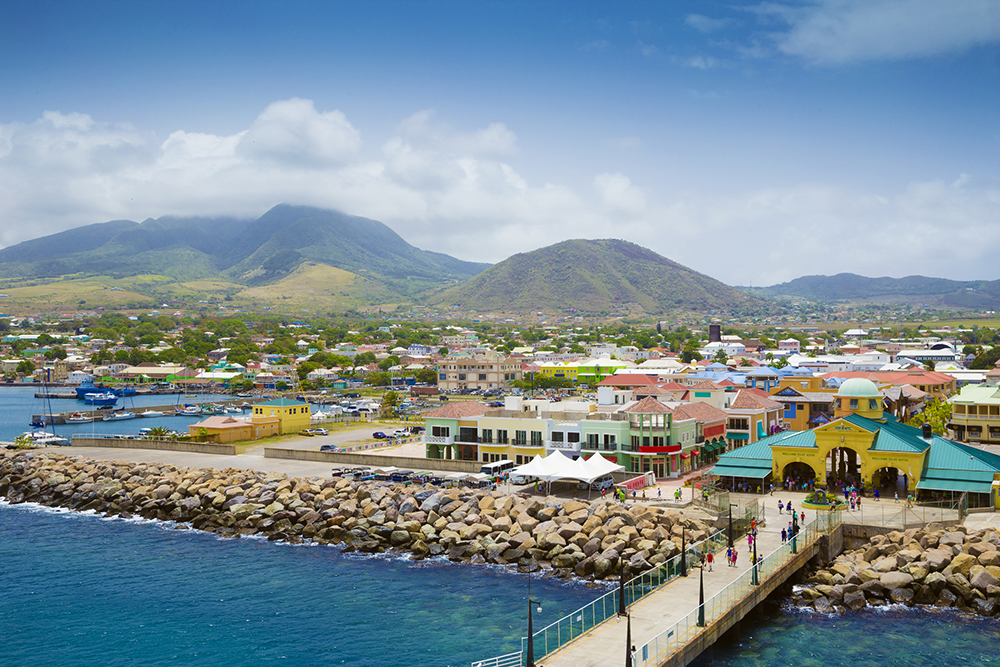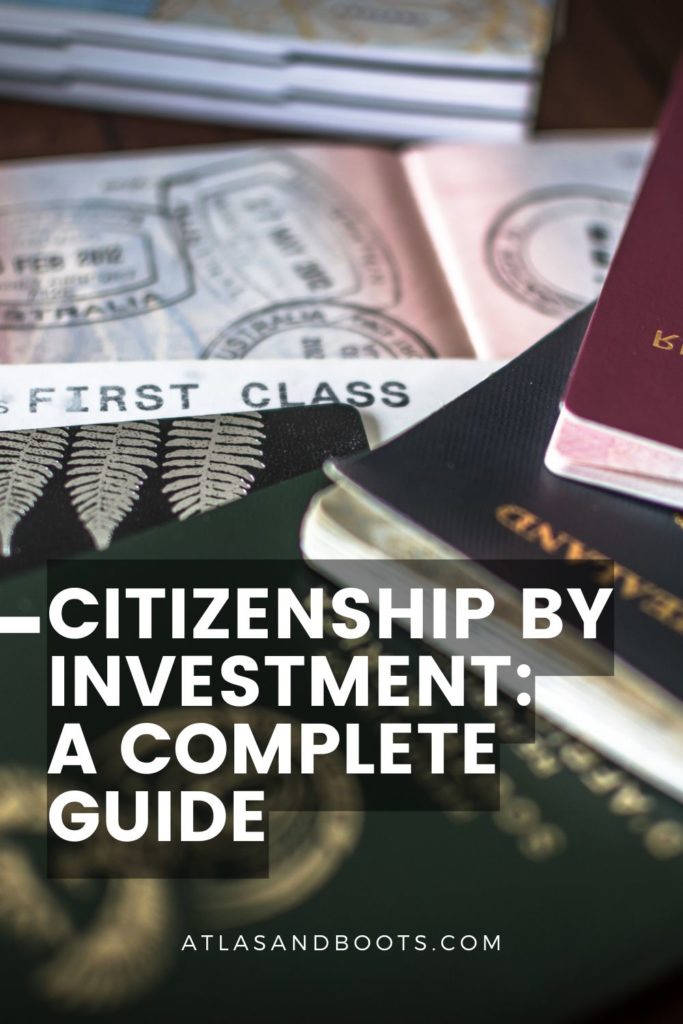
Thinking about a second passport? Discover how citizenship by investment can open doors to new travel, lifestyle and financial opportunities
You’re probably in the remote work section of this website because you want more freedom. Or more travel options. Or perhaps it’s more security for your family’s future. That’s exactly what citizenship by investment (CBI) programmes deliver. And in 2025, they’ll never be more accessible or better regulated than ever before.
Citizenship by investment programmes allow you to acquire a second citizenship by making a substantial financial contribution to a country’s economy. In return, you get a passport, full citizenship rights and the ability to live, work and travel as a national of that country.
But here’s what most people don’t realise: CBI isn’t just about buying a passport. It’s about buying peace of mind, global mobility and long-term security for generations. Let’s dive into everything you need to know.
What is citizenship by investment?
Citizenship by investment programmes enable individuals to acquire citizenship through legally prescribed financial contributions. These typically involve real estate purchases, donations to government funds or investments in local businesses.

The concept originated in the early 1980s when St Kitts & Nevis introduced the first formal CBI scheme in 1984. Dominica followed in 1993, and the industry has expanded considerably since.
As of 2025, over 20 countries offer citizenship by investment programmes, though some earlier entrants like Cyprus, Moldova and Montenegro have closed or paused their offerings.
Here’s how CBI differs from other programmes:
- Citizenship by investment: Grants immediate citizenship and a passport, sometimes with minimal or no residence requirements.
- Residency by investment (Golden Visa): Grants legal residency with a pathway to citizenship after several years and greater physical presence obligations.
- Regular residency: Confers the right to live and work but doesn’t include passport or voting rights.
Why do countries offer citizenship by investment programmes?
Countries don’t offer CBI programmes out of generosity. They’re strategic economic tools designed to attract foreign direct investment, boost government revenues and reduce public debt.
For smaller nations, especially island states, CBI proceeds fund critical infrastructure, education, healthcare and disaster recovery. In Dominica, for example, the programme contributed over 40% of government revenue in 2023.

St Kitts & Nevis recorded over $150 million in CBI receipts in 2024 alone. These aren’t small numbers for economies of their size.
The competition has intensified as more countries introduce CBI programmes. This has spurred ongoing refinements: reduced processing times, diversified investment options, and more rigorous due diligence to maintain international credibility.
In 2024-2025, leading Caribbean programmes undertook major reforms to align with increased EU and OECD scrutiny, including heightened vetting measures and mandatory personal interviews.
Benefits and drawbacks
Let’s be honest about what you’re really getting with a second citizenship.
The benefits
- Enhanced global mobility: Second citizenship often grants visa-free or visa-on-arrival travel to 140+ countries. Malta’s passport, for instance, provides access to 190 destinations.
- Tax planning and wealth protection: Some jurisdictions offer no or low personal tax on foreign-source income, capital gains, inheritance, or wealth taxes. This isn’t about tax evasion – it’s about legal optimisation.
- Political and economic security: CBI serves as a “Plan B” during times of unrest or economic uncertainty. It’s insurance you hope you’ll never need but are grateful to have.
- Family inclusion: Most programmes allow inclusion of spouses, children, and sometimes dependent parents or siblings. You’re not just securing your own future.

The drawbacks
- Cost: Minimum qualifying investments start from $100,000 in the Caribbean and can exceed $1,000,000 for Malta. Additional legal and due diligence fees apply.
- Potential revocation: Illegal conduct or misrepresentation may result in citizenship being revoked, as seen in recent high-profile cases.
- Regulatory uncertainty: Programmes may change, suspend, or increase requirements abruptly in response to international pressure.
Tax and citizenship considerations
Dual citizens may benefit from favourable tax regimes, but complexity increases. US citizens, for example, remain liable for worldwide taxation regardless of other citizenships.
Some countries prohibit dual citizenship entirely. China, India, Singapore and Saudi Arabia require renunciation of original citizenship. Failure to comply can result in loss of rights or legal penalties.

Current CBI programmes
Here are the most viable programmes available today:
- Caribbean programmes: St Kitts & Nevis ($250,000+), Dominica ($100,000), Grenada ($150,000), Antigua & Barbuda ($100,000), and St Lucia ($100,000) remain the most popular options. Processing times range from 3-6 months with no physical presence requirements.
- European options: Malta requires €600,000-€750,000 depending on residency period, plus 12-36 months’ actual residency. Processing takes 14-36 months, but provides EU citizenship with access to 190 countries.
- Other programmes: Turkey offers citizenship through $400,000 real estate investment with 3-6 months of processing. Vanuatu provides the fastest option at 1-2 months for $130,000.

Recent changes include increased due diligence across all Caribbean programmes, with St Kitts & Nevis and Dominica now requiring personal security interviews. Grenada added China visa-free travel in 2024, significantly boosting its appeal.
The validity period varies by country. St Kitts & Nevis passports are valid for 10 years for adults and 5 years for children.
The application process
The application process follows a consistent pattern across most programmes:
- Consultation and selection: Engage a government-authorised agent and select your country and investment route. This step is crucial – choose experienced advisors like Global Residence Index who understand the nuances of each programme.
- Document preparation: Gather personal, financial, and legal documentation, including police clearance, biography and proof of funds. This stage often takes the longest.
- Due diligence: Multi-tiered background checks by government and external agencies for security, financial crime and international sanctions compliance.
- Submission and pre-approval: Application and investment funds submitted; government reviews and issues approval-in-principle.
- Investment completion: Complete the required investment only after receiving pre-approval in most programmes.
- Citizenship and passport: Certificates of citizenship and passports are issued and delivered through authorised agents.
Applications can be rejected for misleading information, failed background checks, criminal records, insufficient funds, or links to sanctioned countries. Success rates are high when applications are properly prepared and submitted through experienced agents.

the future of citizenship by investment
Several trends are reshaping the CBI landscape in 2025:
- Technology integration: Digital application systems and blockchain anti-fraud tools are becoming standard. St Lucia and Malta introduced digital processing platforms in 2025.
- Diversified investment options: Countries are expanding beyond passive investments into technology, innovation and start-up sectors to attract more strategic capital.
- Increased scrutiny: The EU, OECD and FATF continue to pressure programmes to adopt stricter due diligence and transparency measures. All compliant programmes have enhanced their vetting processes accordingly.
- Programme Consolidation: Expect smaller or under-regulated programmes to be phased out while major players enhance international cooperation in security screening.
Investment thresholds will likely rise as countries seek to limit applicant volume while increasing quality. Several countries in Africa, the Caribbean and the Pacific are evaluating limited-scale CBI initiatives for 2026-2027.
Making the right choice
Choosing the right CBI programme depends on your specific needs: desired travel destinations, tax planning requirements, processing speed and budget constraints.
Caribbean programmes offer the best value for most applicants, while Malta provides EU citizenship for those requiring European access. Turkey appeals to those wanting quick processing and real estate investment opportunities.

The key is working with experienced advisors who understand programme nuances and can guide you through potential pitfalls. Global Residence Index has helped hundreds of clients navigate these complex applications with a proven track record of success.
Citizenship by investment offers a legal, structured path to enhanced global mobility, flexibility and future security. As scrutiny increases and regulations tighten, reputable programmes have grown more transparent and rigorously managed, cementing CBI as a legitimate – though premium – global mobility strategy for 2025 and beyond.
Your second citizenship isn’t just a document. It’s freedom, security and opportunity for you and your family’s future.
This article was written by a guest contributor.
Enjoyed this post? pin it for later…






